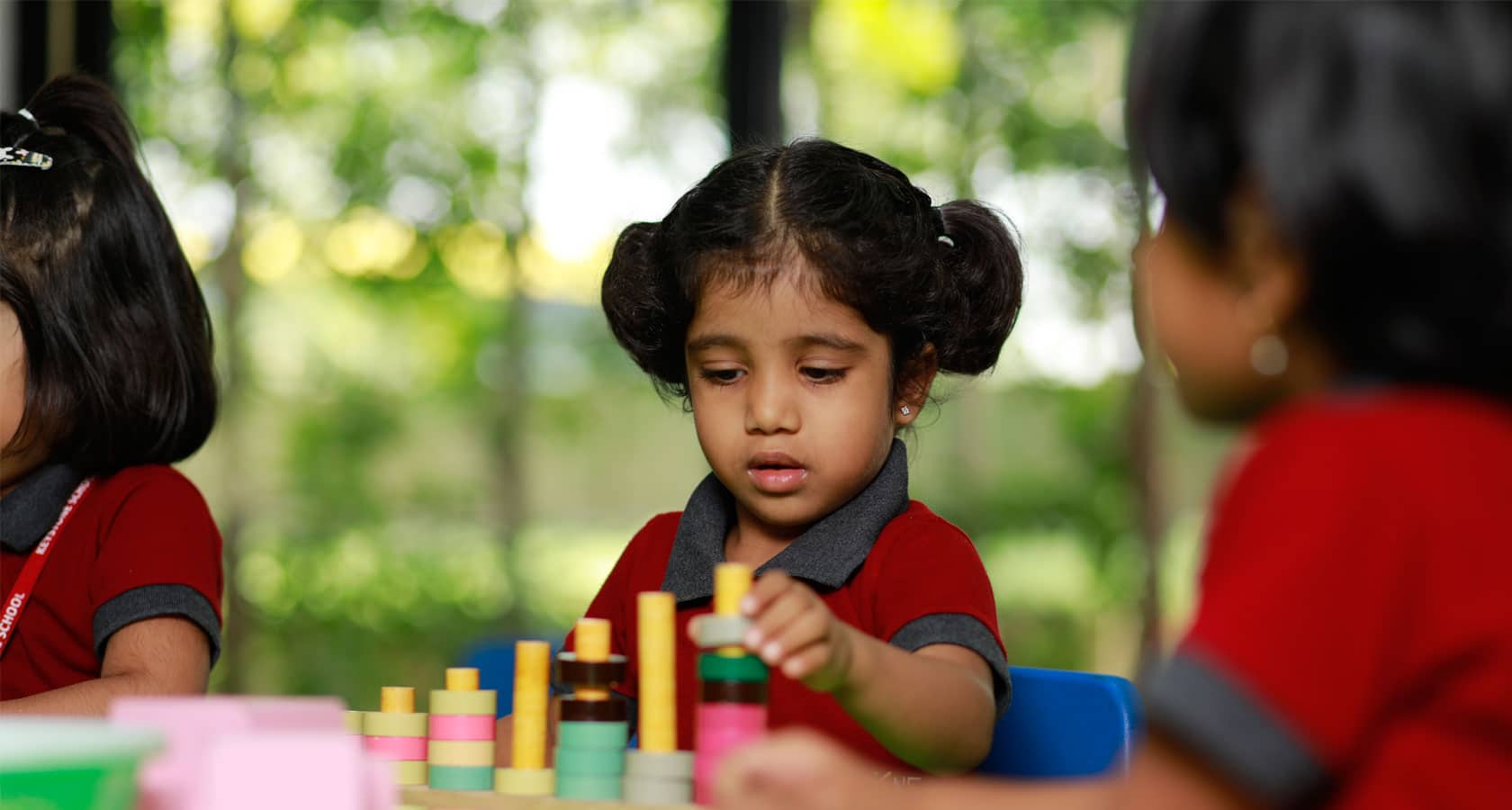
Keystone Early Years (KEY) : Nursery to PP2
Early Years Philosophy : At Keystone, we respect children’s unique personalities and potentials as well as their appetite for knowledge. We believe that young learners are most influenced by their immediate environment, family, community, and culture, therefore are encouraged to explore themselves within it.
Keystone’s Cambridge Early Years Curriculum is inspired by the Reggio Emilia Approach which originated in Italy. The core philosophy of the program is represented in the following dimensions:
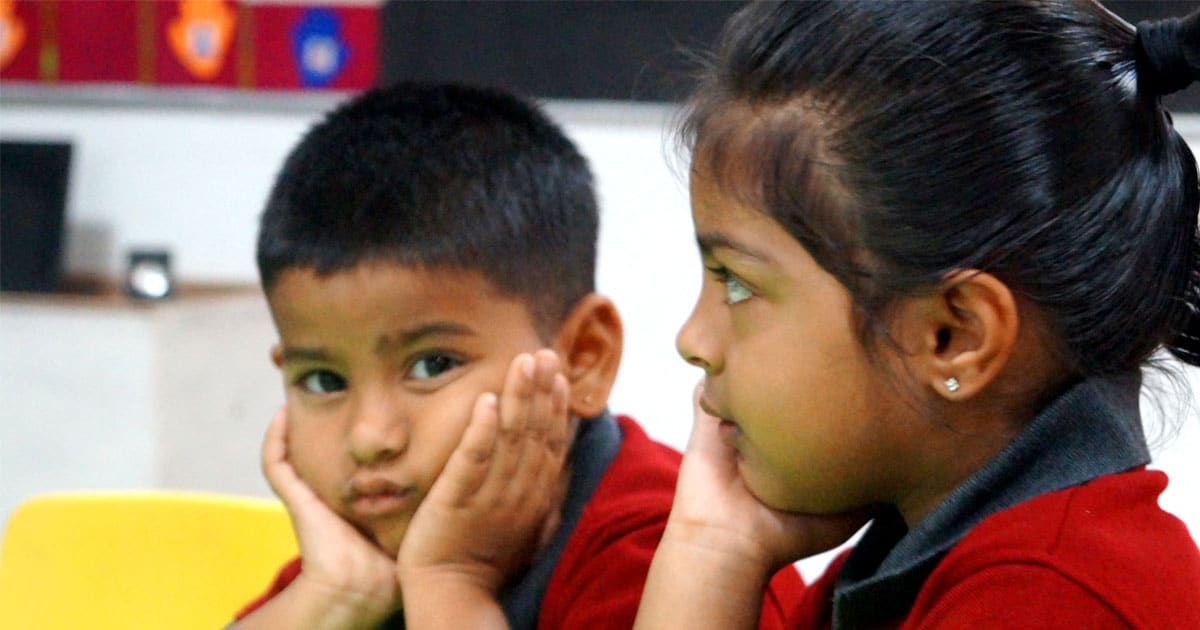
Young children take in all that they see around them and that’s what makes the early formative years so very important. We conceptualize an image of the child as competent, strong, inventive, and full of ideas with rights instead of needs. They express their ideas through art, music, play, storytelling, writing, drawing, etc.
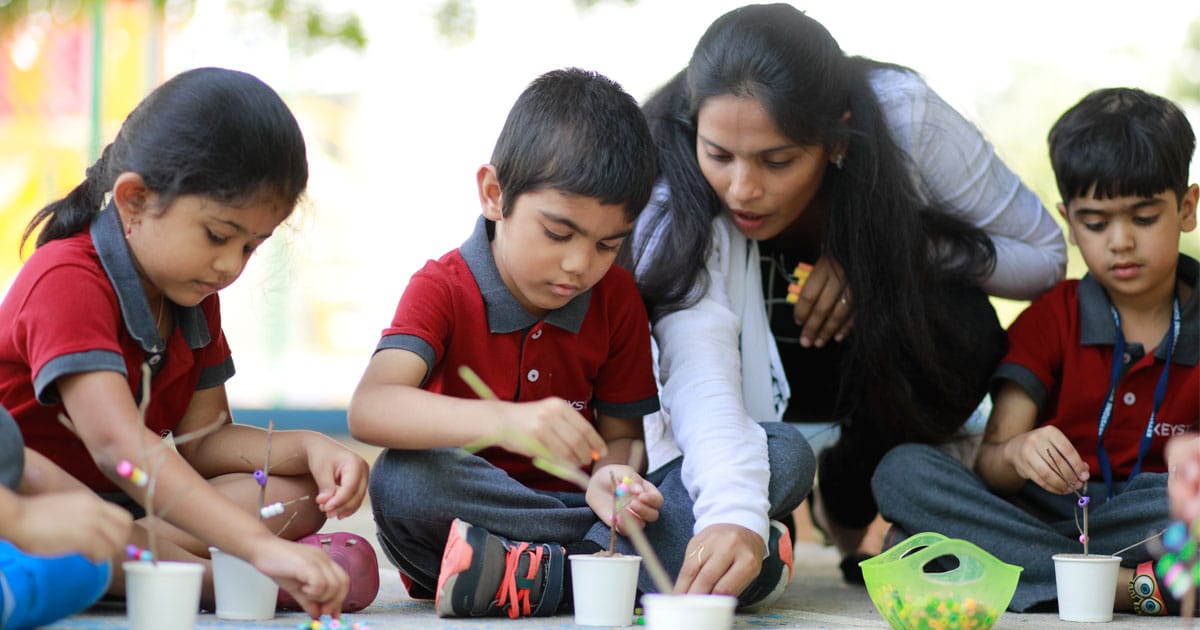
Learning is a social process based on trust, respect, and encouragement. A teacher is an observer, supporter, and guide that brings wisdom and thoughtfulness to the child’s unique social and intellectual exploration. Teachers help children connect the dots and support the ever-expanding web of knowledge.
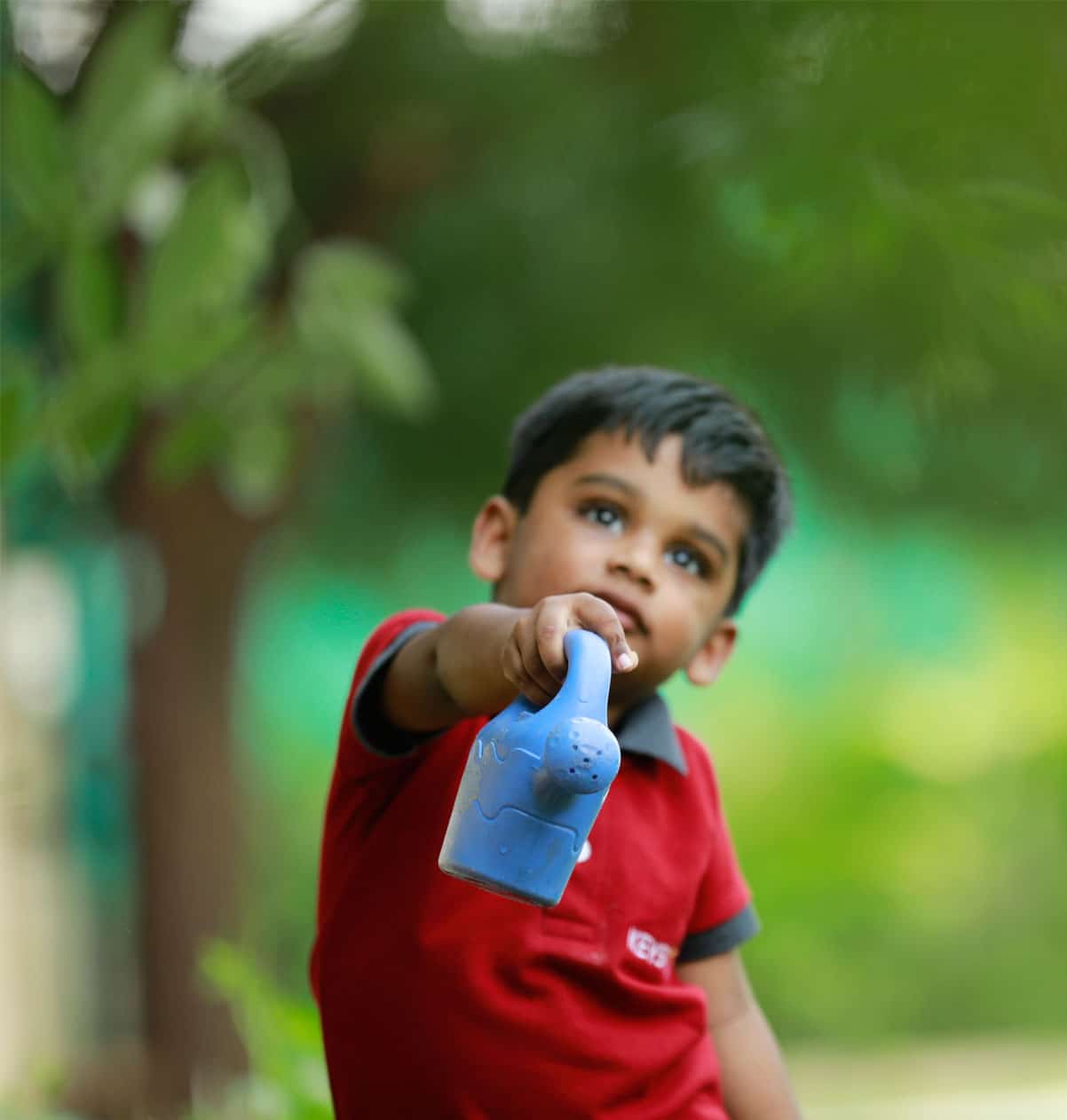
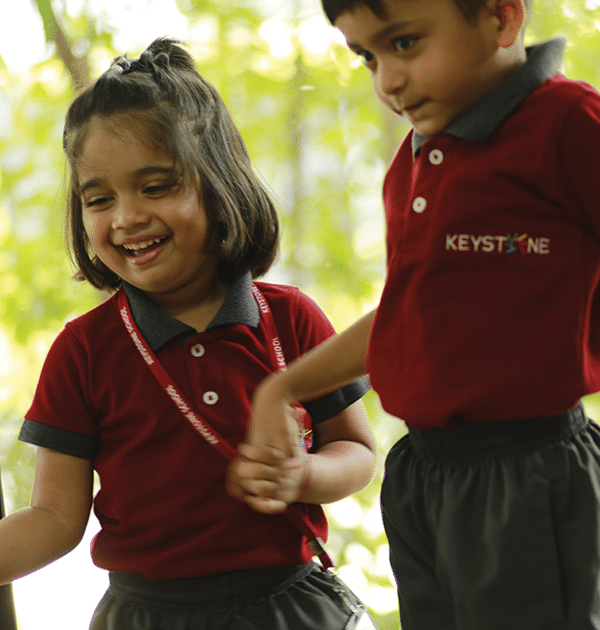
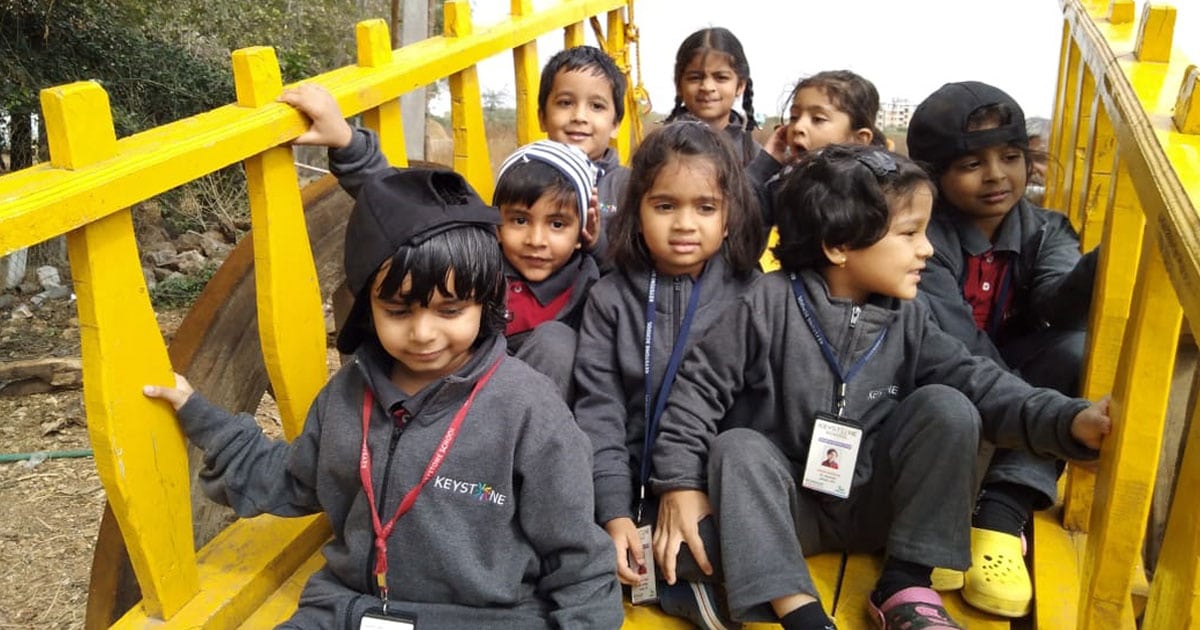
The environment is the third teacher. Children are provided with an environment filled with natural light, order, and beauty. Open studio spaces free from clutter, where every material connects the child with the actual scenarios that they experience every day. The space encourages collaboration, communication, and exploration. Children learn through sensory experiences and integration.
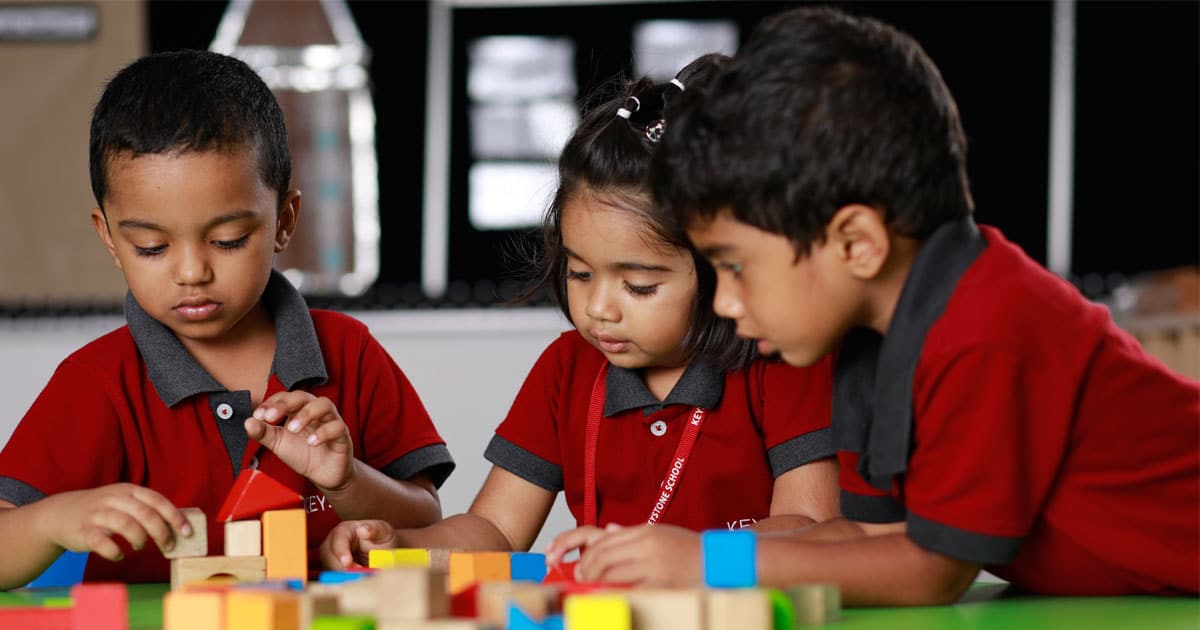
We believe children are connected to family, community, culture, and place. Their earliest development and learning take place through the relationships they share with their parents, family members, and educators. Active communication with teachers and families allows for collaborative goal-setting.
Children are natural storytellers, explorers, curators, and math lovers. With the Cambridge Early Years Curriculum, we help them channel their innate curiosity for improved learning experiences. We focus on providing comprehensive, well-rounded learning and growing experience through the following disciplines: Social–Emotional Life skills, Physical, Language & Literacy, Numeracy, World Around, Environment, Creative Arts, Languages, and Theatre.
![]()
![]()
(Fine & Motor)
![]()
Development
![]()
Development
![]()
![]()
![]()
![]()
Development
